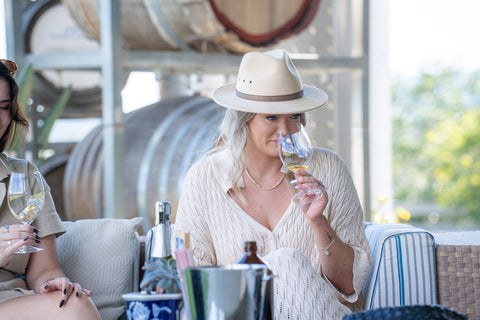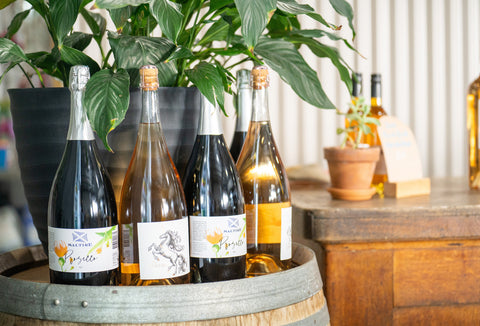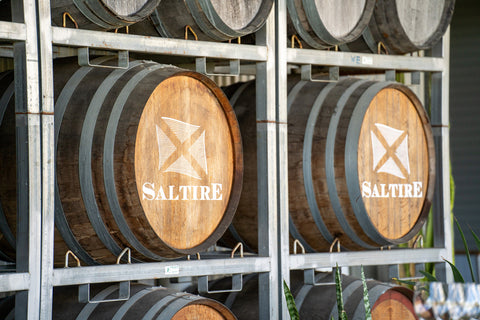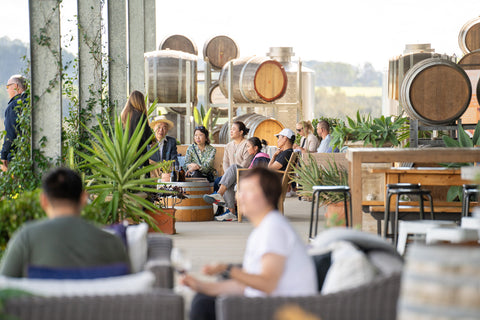Wine tasting can be an exciting and enriching experience, especially if you're new to the world of wines. The process involves more than just sipping and savouring; proper etiquette plays a crucial role in ensuring a pleasant experience for everyone.
Whether you're visiting a winery or attending a wine-tasting event, knowing the basics of wine-tasting etiquette can make your experience much more enjoyable.
Understanding wine-tasting etiquette helps you appreciate the nuances of each wine and shows respect for the wine makers' hard work. It involves knowing how to properly taste wine, how to interact with others at the event, and what to avoid doing. Following these guidelines can help you feel more confident and make the most of your wine-tasting adventure.

Understanding the Essentials of Wine Tasting Etiquette
Wine tasting has its own set of rules to help everyone enjoy the experience. Knowing a few basics can make your visit more enjoyable. First, always hold your glass by the stem. This keeps your hand from warming the wine, which can change its flavour. It also prevents smudges on the glass, making it easier to admire the wine’s colour and clarity.
Next, take it slow. Wine tasting is about savouring and enjoying the flavours. Swirl the wine in your glass to release its aromas, then take a moment to smell it. Smelling the wine is as important as tasting it because most of what we taste comes from our sense of smell. Finally, take small sips and let the wine roll around your mouth before swallowing. This helps you appreciate all the different flavours and textures of the wine.
Do's and Don'ts at a Wine Tasting Event
When visiting a wine-tasting event, there are some key do’s and don’ts to remember. Follow these tips to make the most of your experience.
Do:
- Do ask questions. Winemakers love to share their knowledge and passion for wine.
- Do take notes. Write down your impressions of each wine to remember your favourites.
- Do drink water between tastings. It helps cleanse your palate and keeps you hydrated.
- Do eat light snacks. Many tasting rooms offer bread or crackers to help reset your palate.
Don’t:
- Don’t wear strong perfumes or colognes. They can interfere with the wine’s bouquet.
- Don’t rush. Take your time to savour each wine and enjoy the experience.
- Don’t be afraid to spit. It’s perfectly acceptable to use the spittoons provided, especially if you’re tasting many wines.
By following these simple do's and don'ts, you’ll ensure a pleasant and memorable wine-tasting experience for yourself and others.

How to Use a Wine-Tasting Wheel Effectively
A wine-tasting wheel or lexicon is a helpful tool that can make identifying flavours and aromas easier. This wheel breaks down common wine characteristics into simple categories. Having one handy during the tasting can improve your wine-tasting skills and make the experience more fun.
Start by taking a look at the wine-tasting wheel before you begin. Notice the main categories such as fruity, floral, spicy, and earthy. These categories are further broken down into specific scents and tastes you might encounter. Keep the wheel handy as you taste your wine.
When you taste a new wine, refer to the wheel to help pinpoint what you are sensing. Take your time smelling and tasting and compare your impressions with the terms on the wheel. This can help you articulate what you’re experiencing and deepen your understanding of the wine’s complexity. Using a tasting wheel is like having a map to guide you through the exciting journey of wine tasting.
Tips for Enhancing Your Wine-Tasting Experience
To make your wine-tasting experience even better, here are some handy tips. Firstly, having the right glass can make identifying the wine’s colour and body easier. Use a clear glass with a stem to see the wine’s colour and to avoid warming it with your hand. Pour just a small amount, about one-third of the glass, to allow room for swirling.
Next, make sure you’re in a comfortable setting. Good lighting helps you see the wine’s colour clearly. Avoid strong smells, like foods or perfumes, which can interfere with your ability to pick up the wine’s aromas.
Try tasting wines in a certain order. Start with lighter wines, such as whites and roses, afterwards move on to heavier reds and finish up on sweet dessert wines. This helps your palate gradually adjust to different intensities without getting overwhelmed. Also, take small sips of water between different wines to cleanse your palate.
Lastly, take notes. Jot down your impressions of each wine. Note its look, smell, taste, and texture. Keeping track of these details can help you remember your favourites and improve your wine-tasting skills over time.

Become a Wine Tasting Pro in no time
Tasting wine like a pro can be an enjoyable and enriching experience. By understanding the basics of looking, smelling, and tasting, identifying common flavours and aromas, using a wine-tasting wheel, and following a few simple tips, you’ll be well on your way to sharpening your wine-tasting skills. Each glass of wine tells its own story, and learning to appreciate these stories adds to the fun and enjoyment.
At Saltire Estate, we are dedicated to helping you explore the fascinating world of wine. Whether you're a novice or a seasoned connoisseur, there's always something new to uncover.
Visit us to experience our wines firsthand, and don’t miss out on our Hunter Valley wine sampler packs!




